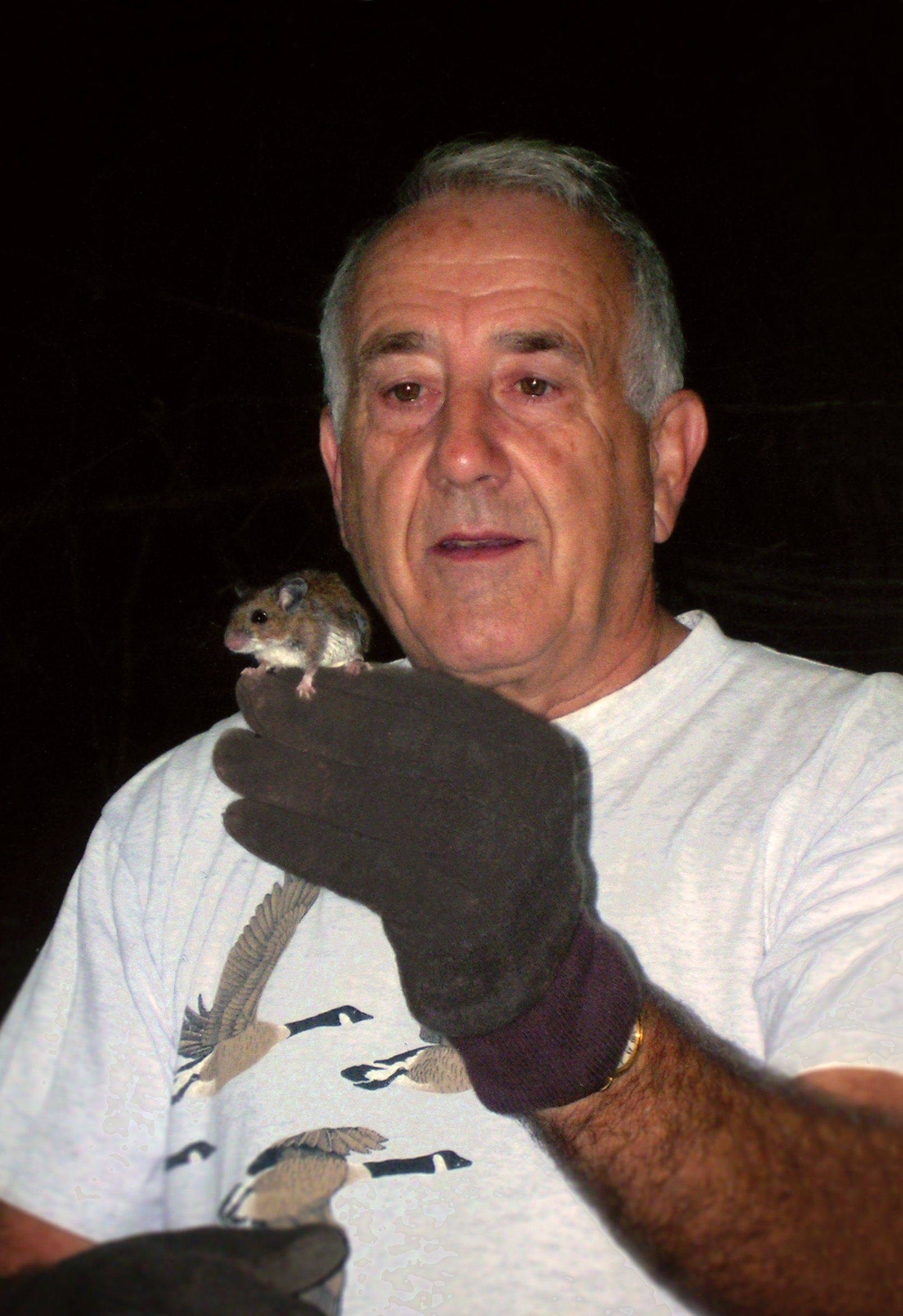Donald W. Linzey receives Virginia Museum of Natural History's Jefferson Medal

Donald W. Linzey, a wildlife conservation instructor in the College of Natural Resources and Environment, describes himself as someone who has never outgrown his fascination for turtles, snakes, wood rats, and other wildlife. After 50 years of teaching, he’s still passing on his enthusiasm.
“Students say their favorite part of my mammalogy course is going into the woods and live-trapping animals,” Linzey said. “They love getting up close to wildlife, something many have never done.”
In a fitting tribute to a lifetime of dedication to the natural world, Linzey has been awarded the Virginia Museum of Natural History’s Thomas Jefferson Medal for Outstanding Contributions to Natural Science Education. The award is presented to a Virginia educator who has made significant contributions to natural history or natural science education at any academic level.
Linzey teaches in the college’s Department of Fish and Wildlife Conservation as well as at Wytheville Community College, where he recently retired after serving as a professor of biology for 25 years. His comprehensive “Vertebrate Biology” textbook is recognized nationally as the most readable on the subject.
His original research is documented in 215 articles in refereed scientific journals and 10 books, including “Mammals of Great Smoky Mountains National Park,” “A Natural History Guide: Great Smoky Mountains National Park,” “The Mammals of Virginia,” and “Snakes of Virginia.”
“Linzey’s work exemplifies the best research, educational, and outreach practices, standing as a model worthy of emulation by others,” said Professor Eric Hallerman of the Department of Fish and Wildlife Conservation, who nominated Linzey for the Jefferson Medal.
Linzey has always gone beyond the expectations for an academic instructor, founding and directing the Blue Ridge Highlands Regional Science Fair, which allowed Southwest Virginia students to participate for the first time in the Virginia State Science Fair and the International Science and Engineering Fair.
Linzey’s efforts have garnered him a variety of teaching awards, including the Commonwealth of Virginia Council of Higher Education Outstanding Faculty Award, the Virginia Community College Systems’ Chancellor’s Professorship Award, the National Institute for Staff and Organizational Development Award for Teaching (three times), and the Carnegie Foundation for the Advancement of Teaching Virginia Professor of the Year Award (twice).
Linzey was an early advocate for endangered species, organizing the state’s first symposium on endangered and threatened plants and animals at Virginia Tech in 1978 and editing the 665-page proceedings. The event served as a basis for continuing research and stimulated Linzey’s long-term interest in the cougar. Although his research funding has focused on a variety of other topics — from toads to rodents — he has dedicated 40 years to verifying the status of the cougar in the southeastern mountains, particularly in the Great Smokies.
As a doctoral student at Cornell University in 1963, Linzey discovered the zoological diversity of Great Smoky Mountains National Park while conducting research on flying squirrels; he has been conducting research there ever since.
He established and leads a Virginia Tech special study summer field course on the natural history of the Great Smoky Mountains, which addresses such topics as forest and high country ecology, bear research, biodiversity inventory, tree identification, air quality, and field journaling techniques.
Linzey served on the Virginia Museum of Natural History’s first board of directors from 1987 to 1989 as well as on the advisory boards for the Intel International Science and Engineering Fair, Discover Life in America, and the Humane Society of Montgomery County.
Almost 50 years after receiving his Ph.D. in biology from Cornell, Linzey has no desire for true retirement and is still teaching five classes at two colleges, remains involved in research, and has two new books cooking in his brain.
“I want to do this as long as I’m able,” he said. “I enjoy working with the students — it’s energizing.”
Linzey received his bachelor’s degree from Western Maryland College and a master’s degree from Cornell.




